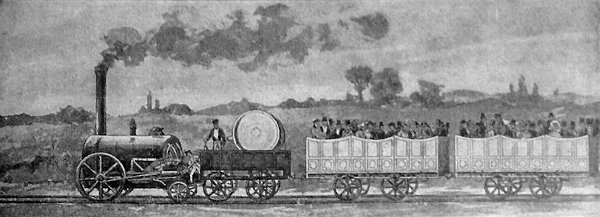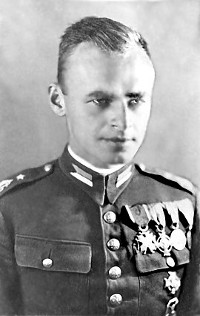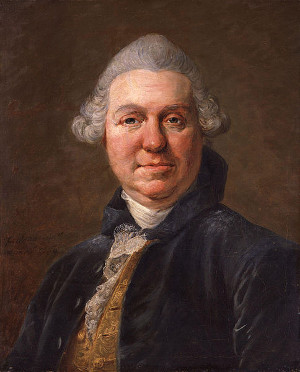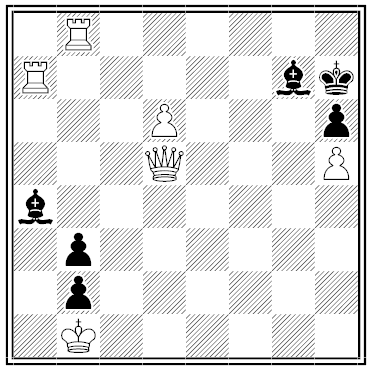
Fanny Kemble meets an early steam locomotive on the Liverpool-Manchester railway, Aug. 25, 1830:
We were introduced to the little engine which was to drag us along the rails. She (for they make these curious little fire horses all mares) consisted of a boiler, a stove, a platform, a bench, and behind the bench a barrel containing enough water to prevent her being thirsty for fifteen miles, the whole machine not bigger than a common fire engine. She goes upon two wheels, which are her feet, and are moved by bright steel legs called pistons; these are propelled by steam, and in proportion as more steam is applied to the upper extremities (the hip-joints, I suppose) of these pistons, the faster they move the wheels; and when it is desirable to diminish the speed, the steam, which unless suffered to escape would burst the boiler, evaporates through a safety valve into the air. The reins, bit, and bridle of this wonderful beast, is a small steel handle, which applies or withdraws the steam from its legs or pistons, so that a child might manage it. The coals, which are its oats, were under the bench, and there was a small glass tube affixed to the boiler, with water in it, which indicates by its fullness or emptiness when the creature wants water, which is immediately conveyed to it from its reservoirs. There is a chimney to the stove, but as they burn coke there is none of the dreadful black smoke which accompanies the progress of a steam vessel. This snorting little animal, which I felt rather inclined to pat, was then harnessed to our carriage, and Mr. Stephenson having taken me on the bench of the engine with him, we started at about ten miles an hour.





